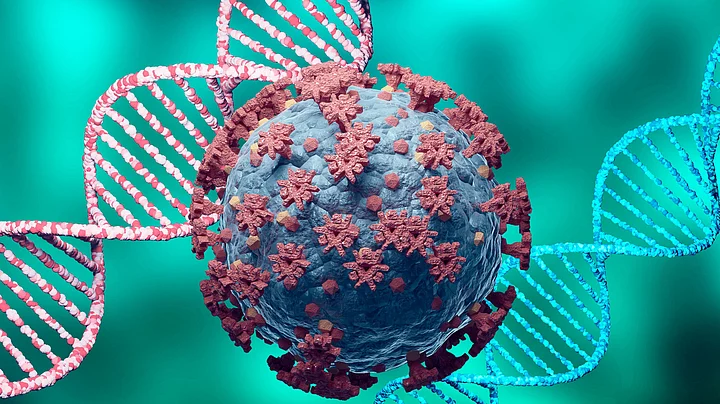Amid new concerns in the second wave and preparations for the third, Vietnam has discovered a new variant of COVID-19 – a hybrid of strains found in India and the United Kingdom. The variants found in India and UK were classified by the World Health Organisation as “variants of global concern”.
Addressing a press conference on 29 May, Vietnamese Health Minister Nguyen Thanh Long said that the country will soon publish genome data regarding the variant.
But, how does the variant spread? Who is at risk? Here’s everything we know so far.
What do we know about the variant?
- The Vietnam government has said that lab cultures show that the strain can replicate itself very quickly
- The new variant spreads rapidly through the air and is more easily transmissible than the ones previously discovered.
- The virus concentration in the throat increases quickly and spreads strongly into the surrounding environment.
“The characteristic of this strain is that it spreads quickly in the air. The concentration of virus in the throat fluid increases rapidly and spreads very strongly to the surrounding environment.”Nguyen Thanh Long, Vietnam Health Minister, reported NDTV
Who is at risk?
- Elderly individuals and those with comorbidities are still a high-risk group for this variant.
- However, since the new variant is more infectious, it could cause more fatalities in unvaccinated people, the country has warned.
How has it affected Vietnam?
- Vietnam reported a sharp increase in COVID-19 cases over the last month.
- Almost half of its 6,396 confirmed infections were reported in April alone, according to Johns Hopkins University data.
- The new variant has reportedly been found in at least 30 of Vietnam’s 63 municipalities, reported PTI.
Is it a variant of concern?
Not yet. The WHO has classified four COVID-19 variants as variants of concern, including the B.1.1.7, B.1.617.2, B.1.351 (first found in South Africa), and P.1 (first identified in Brazil), so far.
“At the present time, we have not yet made an assessment of the virus variant reported in Vietnam.”Maria Van Kerkhove, WHO’s technical lead for COVID-19, in an email statement to Reuters
Do vaccines protect an individual against this variant?
There is no data on this yet. In a country of more than 96 million people, fewer than 30,000, that is just 0.03 per cent population, have been vaccinated.
However, it was established earlier on that the vaccines are effective against the B.1.1.7 variant.
Last week, a study conducted by Public Health England (PHE) found that while two doses of the vaccine (AstraZeneca and Pfizer) provide 81 percent protection against the B.1.617.2 variant, a single dose is considerably less effective when compared to the B.1.1.7 variant.
(At The Quint, we question everything. Play an active role in shaping our journalism by becoming a member today.)
